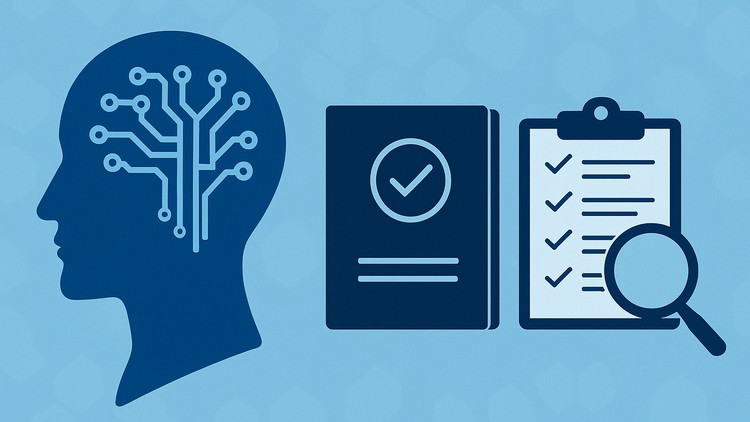
Master ISO/IEC 42001 auditing from planning to reporting—AI risks, ethics, Annex A controls, and real-world audit
What you will learn
Conduct end-to-end ISO/IEC 42001 audits for AI management systems
Evaluate Annex A controls for AI risks, ethics, and governance
Plan, document, and report AI audits using templates and checklists
Integrate ISO 42001 with ISO 27001, ISO 9001, and ISO 31000 frameworks
Add-On Information:
Note➛ Make sure your 𝐔𝐝𝐞𝐦𝐲 cart has only this course you're going to enroll it now, Remove all other courses from the 𝐔𝐝𝐞𝐦𝐲 cart before Enrolling!
-
- Strategic AI Governance: Understand the strategic role of ISO 42001 in organizational AI initiatives, linking compliance with responsible innovation and core business objectives.
- Specialized AI Audit Techniques: Master advanced methodologies for auditing AI systems’ unique complexities, including algorithmic transparency, data lineage, and model lifecycle governance.
- Lead AI Audit Teams: Confidently manage and direct audit teams, ensuring a unified, robust approach to assessing AI management systems against ISO 42001 criteria.
- Navigate AI Regulatory Compliance: Interpret and apply evolving global and regional AI regulations and ethical guidelines in conjunction with ISO 42001 requirements.
- Audit for Ethical AI: Develop skills to audit for biases, fairness, and human oversight in AI systems, promoting trustworthy and responsible AI deployment within organizations.
- Effective Stakeholder Communication: Cultivate the ability to communicate complex AI audit findings, risks, and recommendations to diverse stakeholders, fostering accountability and collaboration.
- Design Comprehensive AI Audit Programs: Design and implement full audit programs for AI management systems, ensuring ongoing compliance and risk mitigation across an organization’s AI portfolio.
- Assess AI System Lifecycle Risks: Identify and evaluate risks throughout the AI system lifecycle (design, development, deployment, monitoring, retirement), ensuring appropriate control effectiveness.
- Advanced AI Evidence Collection: Master specific techniques for collecting and validating audit evidence pertinent to AI, such as model cards, performance metrics, and data quality processes.
-
- PROS:
- High-Demand Specialization: Acquire a unique, in-demand skill set in AI governance and assurance, positioning you as a leader in a critical and rapidly evolving field.
- Enhanced Career Opportunities: Unlock senior roles in AI compliance, risk management, auditing, and ethical AI oversight across diverse industries globally.
- Influence Responsible AI: Play a pivotal role in shaping ethical AI development and deployment, contributing to building organizational and public trust in AI technologies.
- Strategic Impact: Gain the credibility to advise organizations on strategic AI implementation, risk mitigation, and compliance frameworks, directly influencing their AI strategy.
- CONS:
- Continuous Learning Essential: The rapid evolution of AI technology and its regulatory landscape necessitates ongoing professional development to maintain expertise and relevance.
English
language